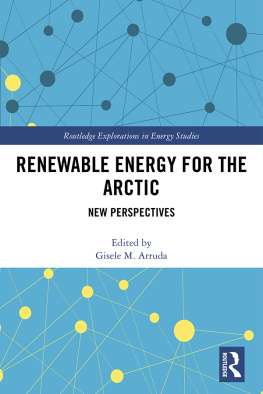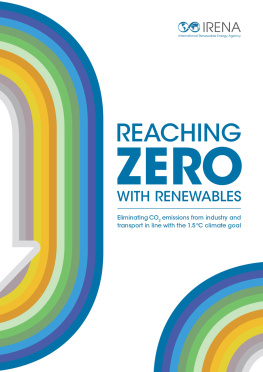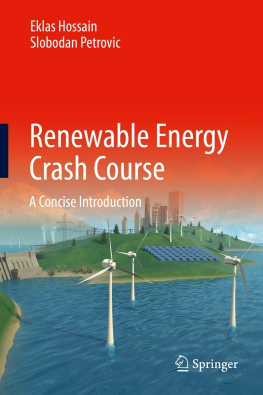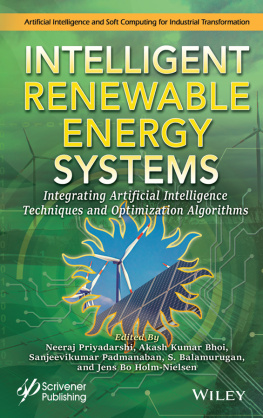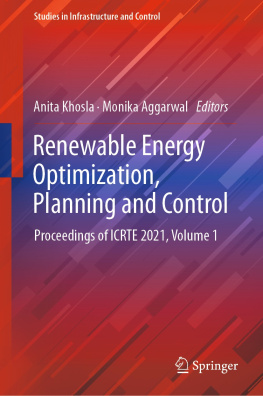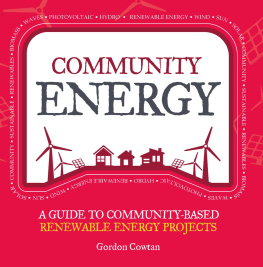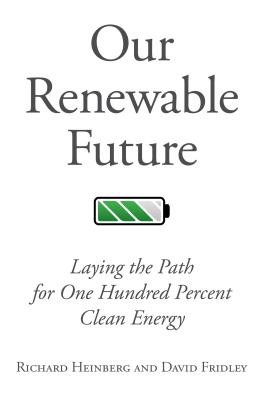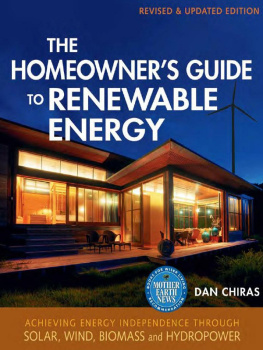Renewable Energy for the Arctic
This book explores various facets of the transition to renewable energy in the Arctic region. It critically examines the adverse effects of fossil fuel extraction and use, environmental and social impacts of climate change, and the possibility of a low carbon energy system through innovation and technology.
Drawing together a diverse range of contributors and considering a range of new energy sources, this volume also looks at the scale of the transition challenges in the Arctic energy production and use, the necessary flexibility to balance energy demand and supply, the need of a more integrated energy infrastructure, and the new energy business models, health and safety, and quality standards for the region. Finally, it examines the transit and influence between Arctic and non-Arctic countries, in terms of growth, partnerships and new dynamics of a transitioning process to a sustainable energy system.
Focusing on specific case studies that represent the most relevant energy projects in the region, this book will be of great interest to students and scholars of energy policy and transitions, climate change, global business and sustainable development.
Gisele M. Arruda is a principal researcher in circumpolar studies in the field of Energy, Arctic, Climate Change, Environment and Society. She lectures on and researches Arctic Energy Management Systems, Renewable Energy, Climate Change and Arctic Studies (Social Impacts of energy and resources development) and Education. She researches at Oxford Brookes University and she lectures at the Global Energy and Sustainability Programme at Coventry University, UK.
Routledge Explorations in Energy Studies
Energy Poverty and Vulnerability
A Global Perspective
Edited by Neil Simcock, Harriet Thomson, Saska Petrova and Stefan Bouzarovski
The Politics of Energy Security
Critical Security Studies, New Materialism and Governmentality
Johannes Kester
Renewable Energy for the Arctic
New Perspectives
Edited by Gisele M. Arruda
Renewable Energy for the Arctic
New Perspectives
Edited by Gisele M. Arruda
First published 2019
by Routledge
2 Park Square, Milton Park, Abingdon, Oxon OX14 4RN
and by Routledge
711 Third Avenue, New York, NY 10017
Routledge is an imprint of the Taylor & Francis Group, an informa business
2019 selection and editorial matter, Gisele M. Arruda; individual chapters, the contributors
The right of Gisele M. Arruda to be identified as the author of the editorial matter, and of the authors for their individual chapters, has been asserted in accordance with sections 77 and 78 of the Copyright, Designs and Patents Act 1988.
All rights reserved. No part of this book may be reprinted or reproduced or utilised in any form or by any electronic, mechanical, or other means, now known or hereafter invented, including photocopying and recording, or in any information storage or retrieval system, without permission in writing from the publishers.
Trademark notice: Product or corporate names may be trademarks or registered trademarks, and are used only for identification and explanation without intent to infringe.
British Library Cataloguing-in-Publication Data
A catalogue record for this book is available from the British Library
Library of Congress Cataloging-in-Publication Data
A catalog record has been requested for this book
ISBN: 978-0-8153-8732-9 (hbk)
ISBN: 978-1-351-17332-2 (ebk)
Typeset in Times New Roman
by Wearset Ltd, Boldon, Tyne and Wear
Contents
Figures
Tables
Contributors
Tom Marsik is Associate Professor of Sustainable Energy at the University of Alaska Fairbanks, College of Rural and Community Development, Bristol Bay Campus and the official world record holder for the Tightest Residential Building. He is also a recipient of Alaskas Top Forty Under 40 award. He has an MS in Electrical Engineering from the Czech Technical University in Prague, and a PhD in Engineering from the University of Alaska Fairbanks. He has dedicated both his personal and professional lives to sustainable energy and related education. He has numerous publications and has served on energy-related committees, including the Consumer Energy subcommittee of Alaskas Governor Bill Walkers Transition Team. He has a loving wife and a four-year-old daughter whose face keeps reminding him to work hard on helping develop a sustainable future.
Nathan Wiltse is Policy Program Manager and Primary Economist at the Cold Climate Housing Research Center in Fairbanks Alaska. He has a BA in Economics from St. Olaf College and an MS in Mineral Economics from the University of Alaska Fairbanks. On behalf of the Cold Climate Housing Research Center he has worked with the Alaska Housing Finance Corporation and tribal entities on numerous issues related to energy efficiency and housing in Alaska.
Gisele M. Arruda has extensive experience as a Principal Researcher in circumpolar studies and in the field of energy, arctic, climate change, environment and society. She lectures and researches on arctic energy management systems, renewable energy, environmental management, arctic studies (social impacts of energy and resources development) and education. She belongs to the research team at Oxford Brookes University, to the Global Energy and Sustainability programme at Coventry University, she is a Fellow of higher Education Academy, a Fellow of the Royal Geographical Society, and an alumnus (Masters degree and pHD) of Harvard University, Oxford University and Oxford Brookes University in Human Geography, Law, Management and Policy. She is the editor-in-chief of Energy, Arctic & Climate Change International Journal, peer-reviewer for other international journals and a PhD supervisor. orcid.org/0000-0002-4541-3592.
Feb M. Arruda is a Principal Researcher in circumpolar studies and Director of Anvivo Research (Anvivo.org). He has undertaken fieldwork in Norway, Canada, Greenland, Iceland, Europe, the US and Latin America. He is an ecologist with a MA in Ecology and Agriculture.
Julianna Mae Hogenson holds a MA in Sustainable Energy Science from Reykjavik University and Iceland School of Energy. Her BSc was obtained at the University of Lethbridge in Archaeology and Geography, Alberta, Canada. Throughout her academic career she has attended post-graduation programmes at Tsinghua University in Beijing, China and multiple field schools in the Middle East and North America. An internship at Icelandic GeoSurvey (ISOR) led to a thesis project focused upon geothermal surface research in Iceland. Her passion for learning and education inspired her contribution to this book.
Enzo A. J. Diependaal has a MSc in Sustainable Energy Engineering at the Iceland School of Energy, part of Reykjavik University. He broadened his degree through the nuclear engineering winter school at St. Petersburg Polytechnic and Arctic energy and petroleum sciences at the University Centre in Svalbard. His thesis and research at the University of Ontario Institute of Technology focuses on experimental nuclear technology analysis and priority setting for off-grid mining in the Canadian Arctic, using The Integrated MARKAL-EFOM System (TIMES) model generator. He holds a BSc in Aviation Engineering from the Amsterdam University of Applied Sciences.


